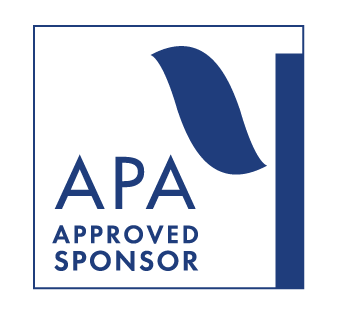Distance Learning program to address important psychodynamic concepts and techniques in individual psychotherapy.
General Overview
This course is an eight-session seminar held by online video conference. The seminar meets on Friday mornings from 9:00 a.m. – 11:00 a.m. US Eastern Time. The first hour is a lecture/discussion seminar designed around assigned readings. The second hour is a discussion of a case presentation and the application of the theory, technique, and research findings that apply to the patient.
The seminar meets over the internet as a live class using a secure Zoom videoconference platform that can be used on any device: computers, laptops, tablets and smartphones.
This videoconference rotates through 4 Modules (1 per semester) on a cyclical basis. Participants can join at the beginning of any module.
Fall 2025 – The Therapeutic Frame
Spring 2026 – Generating Psychic Structure
Fall 2026 – A Thorn in the Flesh Trauma
Spring 2027 – There’s Always Something: Clinical Challenges and Dilemmas
For descriptions of each module visit the main Psychodynamic Psychotherapy Program page.
Program Chair
Stephen Morris, PhD
Fall 2025: The Therapeutic Frame
(Module I of the Psychodynamic Psychotherapy Program)
Psychodynamic psychotherapy is an effective form of treatment, as shown in numerous studies involving thousands of patients. However, many clinicians have had little exposure to it in their post-graduate training. Module I is designed to give you a deep understanding of some important foundational psychodynamic concepts and techniques, including how to think like a psychodynamic therapist, how to understand and formulate cases, how to set up the treatment to facilitate deep work, and how to focus in therapy on the processes that facilitate change. Readings and case presentations will form the basis of our discussions. You will also experience IPI’s unique way of integrating cognitive and affective responses to the material.
You may enroll in this course even if you have never participated in a Psychodynamic Psychotherapy videoconference.
Program Date(s):
September 5, 2025 - December 19, 2025Fall 2025 Course Schedule
9-11am on Fridays (US ET)
Educational Objectives
Fall 2025 – The Therapeutic Frame
September 5, 2025: Class 1
The Psychodynamic Sensibility
Instructor: Michael Stadter, PhD
September 26, 2025: Class 2
Psychotherapy or Psychoanalysis?
Instructor: Vanessa R. Zito, CMHC
October 3, 2025, Class 3
Creating the Therapeutic Environment I
Instructor: Suzanne St. John, PhD, NCPsyA, LP
October 24, 2025: Class 4
Creating the Therapeutic Environment II
Instructor: Sheila Hill, LCSW
October 31, 2025: Class 5
Case Formulation I
Instructor: Janine Wanlass, PhD
November 7, 2025: Class 6
Case Formulation II
Instructor: Janine Wanlass, PhD
November 21, 2025: Class 7
An IPI Attitude
Instructor: Jim Poulton, PhD
December 19, 2025: Class 8
Therapeutic Action
Instructor: Stephen Morris, PhD
Continuing Education Credit Hours
Each eight-session seminar provides 16 hours CE credit.
Attendance Policy
The IPI’s unique Group Affective Model of teaching and learning includes group processing of the material on both the cognitive level and the affective level. This experience is impossible to replace with study alone. Group dynamics evolve in the context of a secure frame which includes the expectation that group membership is stable. For these reasons, attendance is a vital part of the learning experience.
The IPI is an APA-approved provider (sponsor) of continuing education (CE) credit that specifies standards by which CE credits can be awarded for learning activities. The APA only awards CE credit for actual instructional time, and variable credit for partial attendance may not be awarded. IPI expects 100% attendance for a student to receive CE credit. An enrolled student would not receive credit for the course or program unless the student were to attend all of the classes within that academic year. Attendance records are maintained by the faculty at each class. In the very rare instance when a student would have to miss a class, that student would be expected to complete a make-up assignment with specified learning objectives, as part of IPI’s adherence to APA standards for awarding credit. Missing more than one session or failing to do the homework for the 1 missed session may result in 0 CE credits being awarded.
Once the semester has started, registration is closed. Attendance is taken at each class.
Registration
Register for Fall 2025 videoconference: (Registration Opening Soon)
Tuition and Fees
Registration fee is $610 for non-IPI members/non-certificate students.
Discounted registration for Full and Associate IPI Members and Certificate Students (component-based) is $530.
Make sure you are logged in before registering.
Application
To apply for the full Psychodynamic Psychotherapy Program, choose one of the following:
Academic Track Certificate Program Application
Clinical Track Certificate Program Application
Deadline to apply, Aug 1 for Fall semester start or Dec 1 for Spring semester start
Should you have any questions about the program or the application process, please feel free to contact:
Stephen Morris - ppp@theipi.org
Membership Benefits
Become a member of IPI at the “Associate Member PLUS”, or “Full Member PLUS” level and you will receive an IPI Zoom Pro account as one of your member benefits. Associate and Full Members also receive discounted registration fees for most of IPI’s events, a subscription to PEP Web, the online psychoanalytic library, and other benefits depending on membership level.
HIPAA compliant Zoom video accounts are provided for all IPI Associate Member Plus and Full Member Plus memberships. IPI has a HIPAA Business Associate Agreement with Zoom, which provides a HIPAA compliant platform for our accounts. HIPPA compliance is strongly recommended for all internet-mediated clinical work and clinical teaching. The “PLUS” add-on to the IPI membership gives the user the ability to host online meetings with multiple people at the same time. [Current members can upgrade to the “Plus” account and only pay the difference in price from your current membership level.]
Click for IPI Membership and Zoom Account information
Continuing Education Information
The International Psychotherapy Institute, IPI, is approved by The American Psychological Association to sponsor continuing education for psychologists. IPI maintains responsibility for the program and its content. The International Psychotherapy Institute has been approved by NBCC as an Approved Continuing Education Provider, ACEP No. 6017. Programs that do not qualify for NBCC credit are clearly identified. The International Psychotherapy Institute is responsible for all aspects of the programs. The International Psychotherapy Institute is authorized by the Board of Social Work Examiners in Maryland to sponsor social work continuing education learning activities and maintains full responsibility for this program. This training qualifies for Category I continuing education units. The International Psychotherapy Institute is recognized by the New York State Education Department’s State Board for Social Work as an approved provider of continuing education for licensed social workers #SW-0299.
Participants are responsible for verifying that IPI CE credit is accepted by the licensing boards in their own states.



